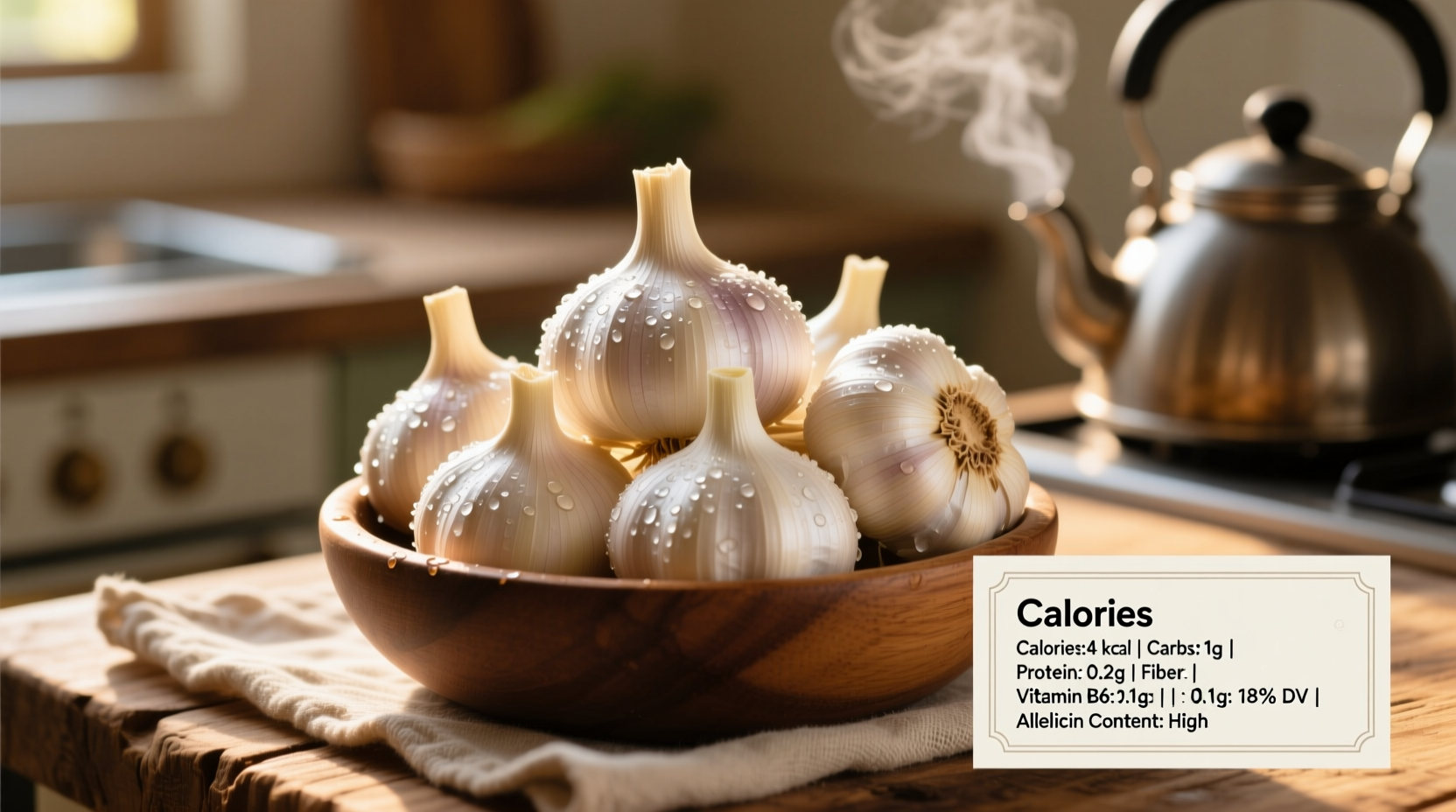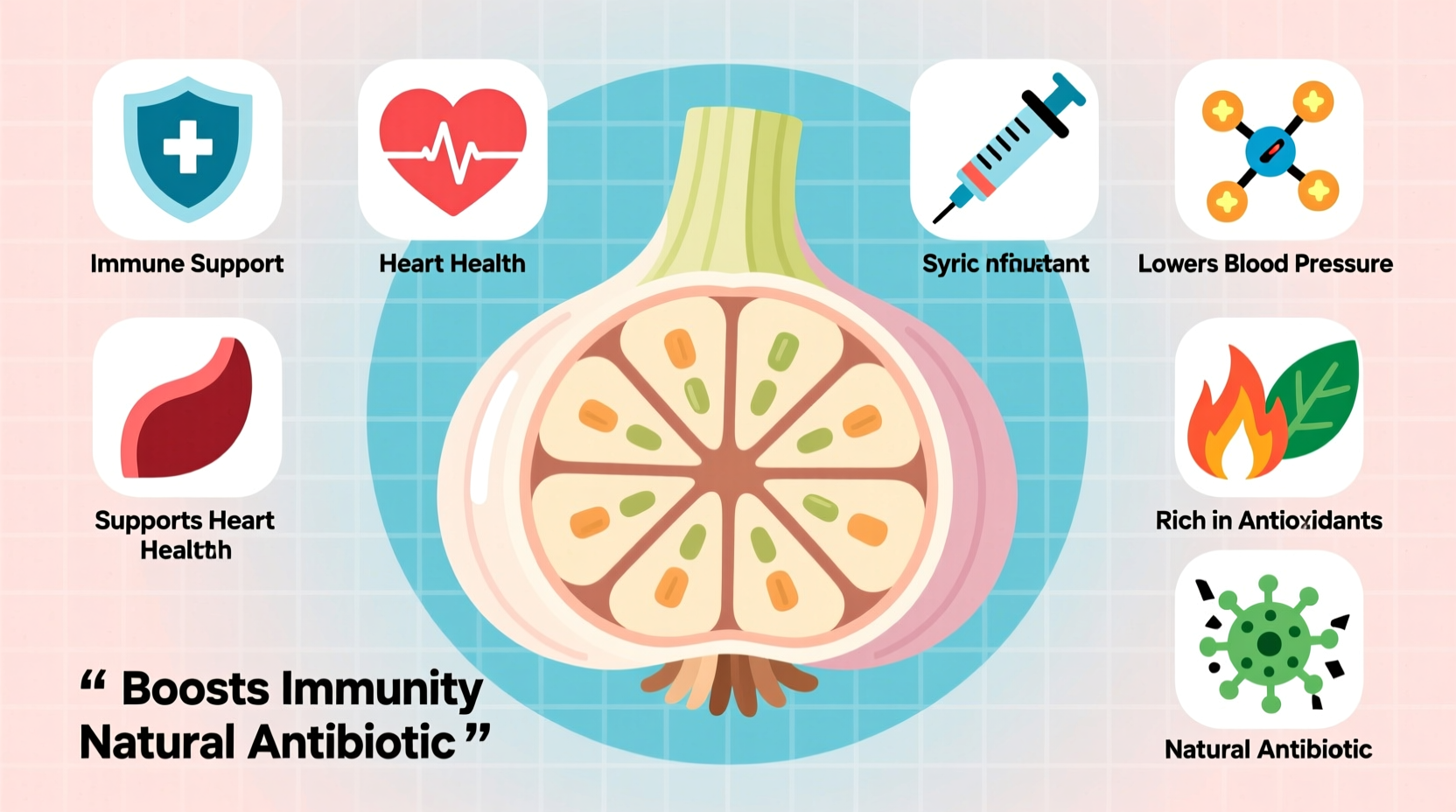For centuries, garlic has been revered not just as a culinary staple but as a powerful medicinal plant. Modern science now confirms what ancient civilizations intuitively knew: this pungent bulb offers remarkable health advantages backed by rigorous research. Whether you're looking to boost your heart health, strengthen immunity, or incorporate more natural disease-fighting foods into your diet, understanding garlic's specific benefits can transform how you approach preventive health.
The Science Behind Garlic's Healing Power
When you crush or chop garlic, an enzyme called alliinase converts alliin into allicin—the compound responsible for most of garlic's health benefits. This biological reaction explains why freshly prepared garlic delivers more potent effects than pre-minced or cooked versions. According to research published in the Journal of Nutrition, allicin demonstrates significant antioxidant, anti-inflammatory, and antimicrobial properties that directly impact human health.

Cardiovascular Health: Garlic's Most Documented Benefit
Multiple clinical studies confirm garlic's positive impact on heart health. A comprehensive meta-analysis in Phytotherapy Research reviewed 21 studies involving 1,794 participants and found garlic supplementation significantly reduced both systolic and diastolic blood pressure in hypertensive individuals. The American Heart Association recognizes garlic as a complementary approach to cardiovascular health, noting its ability to improve endothelial function and reduce arterial stiffness.
| Health Benefit | Scientific Evidence | Recommended Intake |
|---|---|---|
| Blood pressure reduction | Multiple clinical trials show 5-15 mmHg reduction in hypertensive patients | 1-2 cloves daily (raw or freshly prepared) |
| Cholesterol management | Meta-analysis shows 10-15% reduction in total cholesterol | 600-900mg aged garlic extract daily |
| Immune system support | Study in Clinical Nutrition showed 63% fewer colds with regular consumption | 2-3 cloves during cold season |
Immune System Enhancement Through Regular Consumption
Garlic's immune-boosting properties extend beyond folklore. Research from the National Center for Biotechnology Information demonstrates that regular garlic consumption reduces the frequency and severity of common illnesses. In a 12-week study, participants taking aged garlic extract experienced 63% fewer colds and recovered 21% faster when they did get sick compared to the placebo group. The sulfur-containing compounds in garlic stimulate immune cell activity, particularly natural killer cells and macrophages that fight infection.
Practical Application: Maximizing Garlic's Health Benefits
To get the most health benefits from garlic, follow these evidence-based preparation methods:
- Crush and wait: Chop or crush garlic and let it sit for 10 minutes before cooking to maximize allicin formation
- Temperature matters: Cook at temperatures below 140°F (60°C) to preserve active compounds
- Pair wisely: Combine with lemon juice or vinegar to enhance absorption of beneficial compounds
- Fresh beats processed: Fresh garlic provides more benefits than pre-minced or powdered versions
For those concerned about garlic breath, consuming parsley, mint, or apples after eating garlic can significantly reduce odor while preserving health benefits.
Important Context Boundaries: When Garlic Might Not Help
While garlic offers numerous health advantages, it's crucial to understand its limitations. According to the National Center for Complementary and Integrative Health, garlic supplements shouldn't replace prescribed medications for serious conditions. Individuals taking blood thinners should consult their physician before significantly increasing garlic consumption, as it may enhance bleeding risk. Those with irritable bowel syndrome may experience digestive discomfort from raw garlic. The World Health Organization recognizes garlic as safe for most adults at culinary doses (2-5g fresh garlic daily), but therapeutic doses require medical supervision.
Garlic vs. Supplements: What Research Shows
Many wonder whether garlic supplements provide the same benefits as fresh garlic. Research from Mayo Clinic indicates that while supplements offer convenience, they vary significantly in active compound content. Aged garlic extract appears most consistent in delivering health benefits, while enteric-coated tablets help prevent stomach upset. For most people seeking general health benefits, incorporating fresh garlic into daily cooking remains the most effective and economical approach.
Long-Term Health Implications of Regular Garlic Consumption
Population studies reveal compelling connections between regular garlic consumption and reduced disease risk. Research published in Cancer Prevention Research followed participants across multiple countries and found those consuming garlic regularly had up to a 30% lower risk of certain digestive system cancers. The European Prospective Investigation into Cancer and Nutrition (EPIC) study, tracking over 500,000 participants, identified consistent garlic consumption as part of dietary patterns associated with longevity and reduced chronic disease incidence.











 浙公网安备
33010002000092号
浙公网安备
33010002000092号 浙B2-20120091-4
浙B2-20120091-4